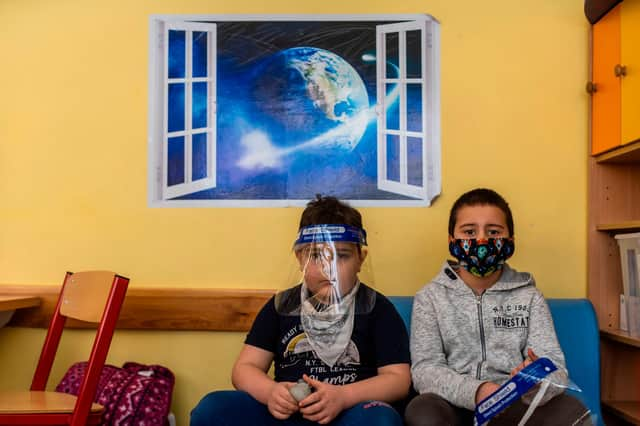Covid Scotland: Mental health services for children must be a priority given pandemic's effect on the economy – Dr Gwenetta Curry


Concern about this was one of the driving factors for reopening schools. When children were forced to stay home, many suffered by falling behind in education and their nutritional needs not being met.
Studies have shown the previous lockdown measures had a negative impact on children’s mental health and well-being.
Advertisement
Hide AdAdvertisement
Hide AdAccording to the Office for National Statistics, third year or higher students (46 per cent) were more likely than all students (28 per cent) to say their mental health and well-being got slightly or much worse since the start of the autumn term 2021.
Also, about one-in-five third year or higher students said they feel lonely often or always, significantly higher than the adult population in Great Britain.
Efforts have been put in place to ensure children receive the mental health support they need in a timely manner. Due to the added pressure the pandemic put on the NHS, resources remain strained.
The Scottish government set a target of a maximum waiting time of 18 weeks between a child’s referral and treatment by specialist child and adolescent mental health services. The most recent data indicate only 78.6 per cent of children and young people are seen within that time.
The data also indicates rural and deprived areas had longer waiting times than the more affluent areas. Overall, nine out of 14 health boards failed to meet the target. More efforts are needed to ensure vulnerable populations do not continue to suffer disproportionately.
Daily Covid cases have significantly decreased but the positivity rate remains well above the two per cent target. The World Health Organization suggests a positivity rate below that is one indication of low Covid community transmission.
As of February 9, Scotland’s positivity rate was around 17 per cent. We are in a much better place than last year due to effective vaccines and booster shots. According to Public Health Scotland data, 70 per cent of the population have received their booster shots and only eight per cent of the eligible population remain unvaccinated. The vaccinations have significantly reduced the risk of death and hospitalisations related to Covid.
As children under 11 remain unprotected from Covid, we must consider the anxiety these students are experiencing. Although schools have reopened and many of the “normal” activities have restarted, there remains concern about their risk of being infected.
Advertisement
Hide AdAdvertisement
Hide AdTo ensure children can develop and grow in a healthy way, mental health must be a priority. Although there can be no doubt that parents and teachers are doing their best to meet their needs, there is an urgent need for accessible mental health services.
Structural inequality must be addressed to create a more equitable approach to addressing the disproportionate suffering of vulnerable populations. The economic impact the pandemic has had on families can clearly lead to poor mental health for parents and children.
Loss of income reduces the resources families need to meet their very basic needs. The current increases in gas and food costs only exacerbate the strain that families are already feeling due to the pandemic.
Dr Gwenetta Curry is an Edinburgh University lecturer on race, ethnicity and health
A message from the Editor:
Thank you for reading this article. We're more reliant on your support than ever as the shift in consumer habits brought about by coronavirus impacts our advertisers.
If you haven't already, please consider supporting our trusted, fact-checked journalism by taking out a digital subscription.
Comments
Want to join the conversation? Please or to comment on this article.

